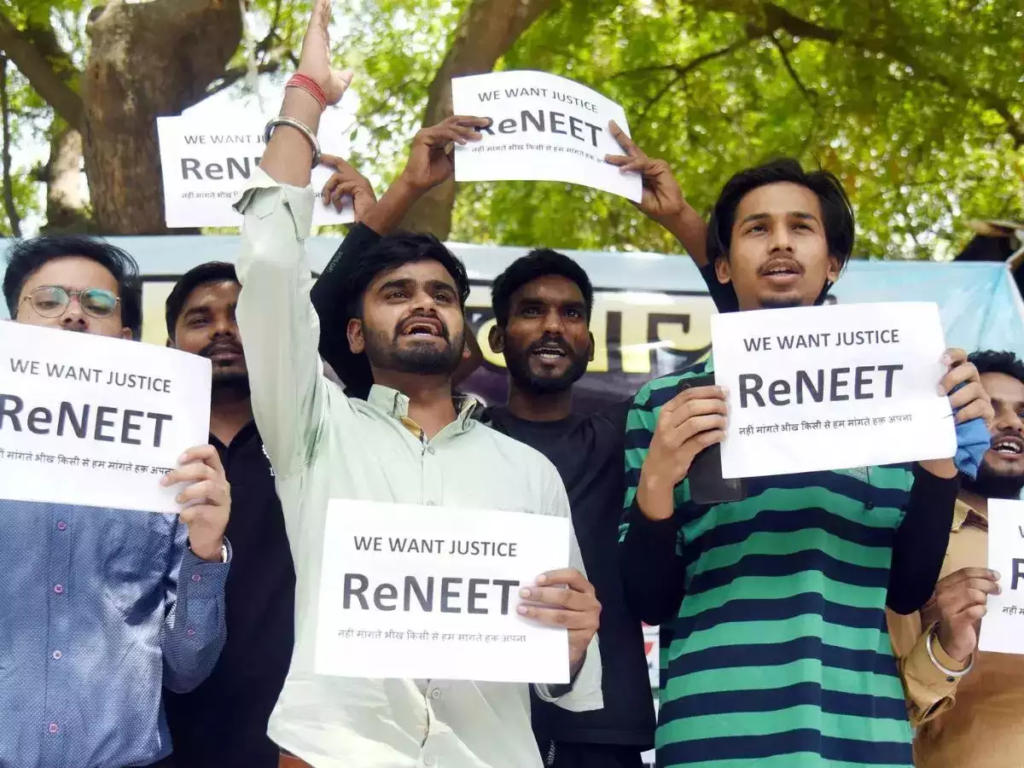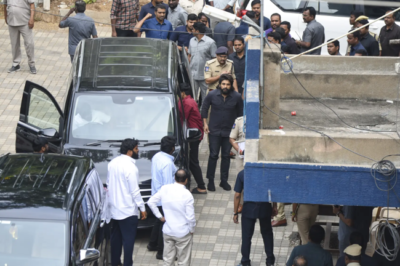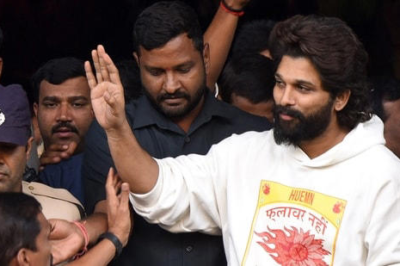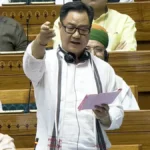
Overview
In response to widespread allegations of irregularities and paper leaks in the National Eligibility-cum-Entrance Test (Undergraduate) (NEET-UG) and University Grants Commission–National Eligibility Test (UGC-NET), the Ministry of Education has established a high-level committee to ensure transparent and fair examinations conducted by the National Testing Agency (NTA). This initiative aims to address the systemic flaws and restore trust in the examination process.
Committee Composition
The seven-member committee is led by Dr. K. Radhakrishnan, former ISRO Chairman. Other members include:
- Dr. Randeep Guleria: Former Director of AIIMS Delhi
- Prof. B. J. Rao: Vice Chancellor, Central University of Hyderabad
- Prof. Ramamurthy K.: Professor Emeritus, IIT Madras
- Pankaj Bansal: Co-Founder, People Strong
- Prof. Aditya Mittal: Dean Student Affairs, IIT Delhi
- Govind Jaiswal: Joint Secretary, Ministry of Education (Member Secretary)
Key Responsibilities
1. Examination Process Reform:
- Analyze the end-to-end examination process.
- Suggest measures to improve efficiency and prevent breaches.
2. Data Security Enhancement:
- Review and strengthen Standard Operating Procedures (SOPs) and protocols.
- Recommend improvements to existing data security processes.
3. Structural and Functional Review:
- Evaluate the organizational structure and functioning of the NTA.
- Define roles and responsibilities of functionaries at every level.
4. Grievance Redressal Mechanism:
- Assess current mechanisms and identify areas for improvement.
- Enhance the efficiency of grievance redressal processes.
Recent Developments
- The committee’s formation follows Union Education Minister Dharmendra Pradhan’s announcement about the need for reforms in the NTA.
- The Public Examinations (Prevention of Unfair Means) Act, 2024, has been enacted to curb cheating and unfair practices in public examinations and entrance tests across the country.
- The act imposes severe penalties, including imprisonment and fines, for individuals and organized groups involved in cheating.
Impact and Future Steps
The committee is expected to submit its report within two months, providing a roadmap for overhauling the NTA’s examination process. The reforms aim to ensure a transparent, smooth, and fair examination process, thereby restoring confidence among students and the public.
In Summary:
- Formation of a High-Level Committee: Led by Dr. K. Radhakrishnan, to reform the NTA examination process.
- Key Focus Areas: Examination process reform, data security enhancement, structural review, and grievance redressal.
- Legislative Action: Enactment of the Public Examinations (Prevention of Unfair Means) Act, 2024.
- Expected Outcome: Transparent, efficient, and fair conduct of national examinations.
This initiative marks a significant step towards addressing the systemic issues in India’s national examination system and ensuring the integrity and credibility of the testing process.




































Leave a Reply